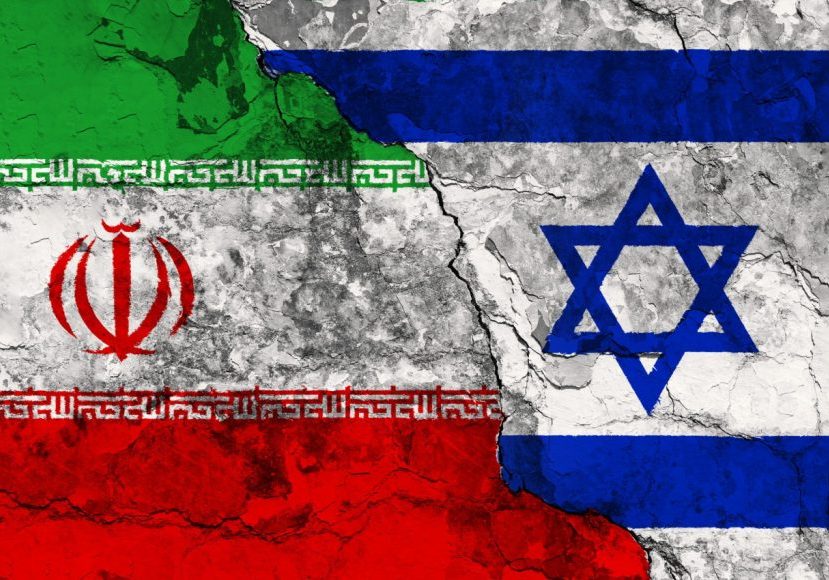IN THE MEDIA
Pejorative words will not give peace a chance
Jun 10, 2014 | Colin Rubenstein

Colin Rubenstein
Canberra Times – June 10, 2014
Federal Attorney-General Senator George Brandis has been attacked from various quarters – including by Joseph Wakim in these pages (”An occupied land suffers from preoccupied minds”, Times2, June 9, p5) – for announcing that the Australian government will not refer to east Jerusalem as “occupied”.
Yet what has been portrayed by detractors as a “radical” step, and as taking sides in the conflict is actually the opposite. The use of a pejorative term such as “”occupied”” prejudges the issues in dispute and amounts to effectively taking the Palestinian side. By contrast, adopting more neutral terminology – such as calling the area “disputed” – is a more constructive approach to the situation. It does not mean support for Israeli annexation of the area or unrestrained settlement growth. It just means proper acknowledgement that the issues need to be genuinely negotiated if a two-state resolution is to be achieved.
East Jerusalem includes the old city of Jerusalem, with its ancient Jewish quarter and the holiest site in Judaism, the Western Wall. Israel captured it in its defensive 1967 Six Day War, from Jordan, who had occupied it since 1948. Prior to that, there had been a substantial Jewish population there for thousands of years, but Jordanians had ethnically cleansed it of its entire Jewish population, destroyed all of the dozens of synagogues, and closed the holy places to all Jewish worshippers in violation of treaty commitments. By contrast, since Israel recaptured the area, people of all religions have had access to and control over their holy sites.
Legally, it is far from settled that any party has a stronger claim to the area than Israel. In 1967 Israel took east Jerusalem in a defensive war from a country, Jordan, that had no legal right to the area, having seized it in a war of aggression in 1948. Subsequently, Jordan renounced any claim to the area.
The term “occupation” is generally used in international law to denote the presence of one country in sovereign territory that belongs to another. But the West Bank and east Jerusalem are not sovereign Jordanian territory – nor are they “Palestinian territory”, since no sovereign Palestinian state has existed there.
Certainly, the UN Security Council didn”t anticipate Israel having to withdraw from the whole of the West Bank and east Jerusalem. Resolution 242, passed in 1967, required Israel to withdraw “from territories occupied (ie captured) in the recent conflict” in return for peace. It was no accident that it did not say “all the territories” or “the territories”. Numerous diplomats directly involved in drafting that resolution – Lord Caradon, the British ambassador to the UN at the time, George Brown, the British foreign secretary and Eugene Rostow, US undersecretary of state for political affairs in 1967 – have stated that the language of 242 was intended to indicate that the boundaries should be negotiated. Nothing – including a purely advisory opinion by the International Court of Justice in 2004 made in response to a clearly prejudicial UN General Assembly resolution – has altered this view since.
While the legalities are important, so too is encouraging a way forward. It is widely acknowledged that the Israeli-Palestinian conflict will only be resolved by a compromise that includes a Palestinian state in Gaza and most of the West Bank, and a Palestinian acknowledgement of Israel”s right to exist in peace. This, of course, involves compromises and concessions on both sides. In 2000, 2001 and 2008, the Palestinians were offered a state in all of Gaza and the vast majority of West Bank land, with land swaps to compensate for the rest, and a capital in east Jerusalem. The Palestinians did not accept these offers, or even make counter-proposals.
Now, the Palestinians have walked away from negotiations and have formed a government that includes the terrorist group Hamas, which remains committed to the violent destruction of Israel. Rather than seeking to achieve their state through negotiation and compromise, they are aiming to do so unilaterally. When Western governments use loaded terms such as “occupied”, implying all the land is indisputably Palestinian, it only encourages the Palestinians to believe they can achieve statehood without compromising or negotiating. The same goes for spurious claims that settlement expansion is the major obstacle to peace – for a decade settlements have largely developed only within their existing geographic boundaries, and most new homes are in areas it is widely agreed Israel will keep in any peace deal. Both claims are counter-productive to Australia”s bipartisan policy of encouraging a negotiated two-state resolution.
The government”s clarified stance demonstrates an understanding of the importance of allowing all issues in dispute to be negotiated by the parties, rather than prejudged in a way that hinders the chances of peace. It is a reflection of a considered, constructive and neutral approach to the issues, not a need to make amends or seek funding, as Wakim suggests. Others with a genuine interest in achieving a peaceful two-state outcome would do well to follow this lead.
Dr Colin Rubenstein is executive director of the Australia/Israel & Jewish Affairs Council.
Tags: Australasia











